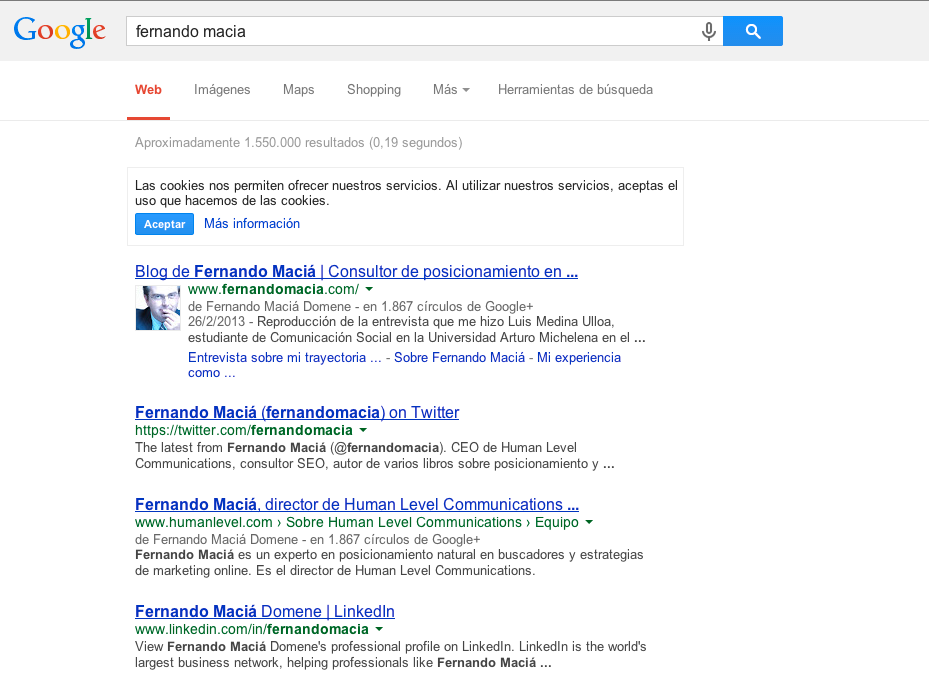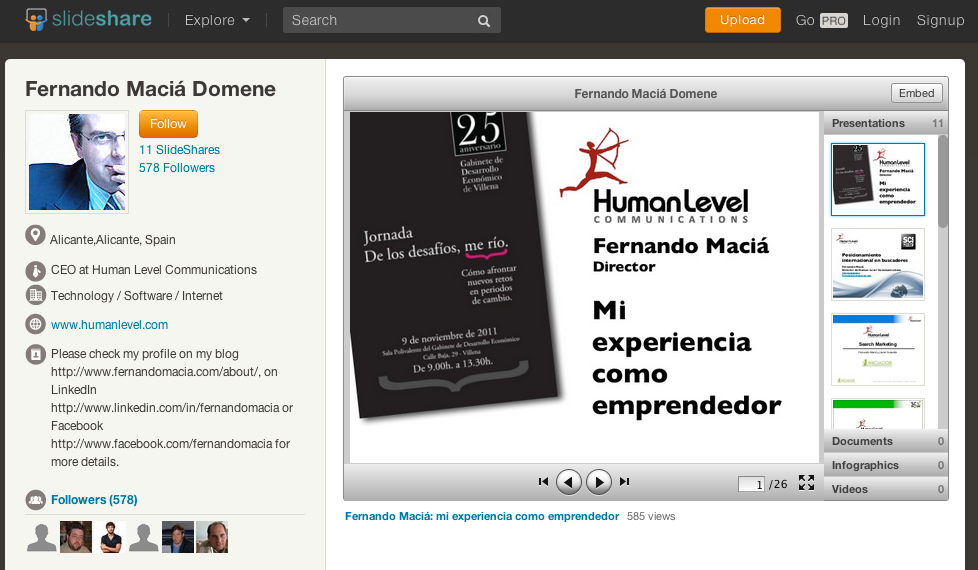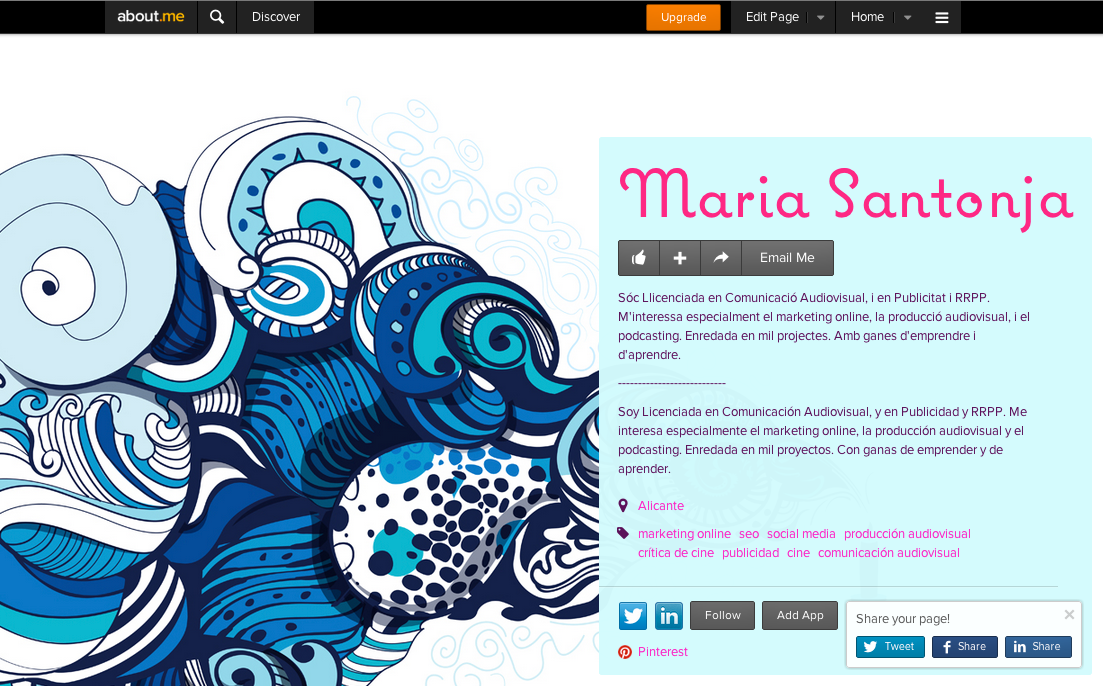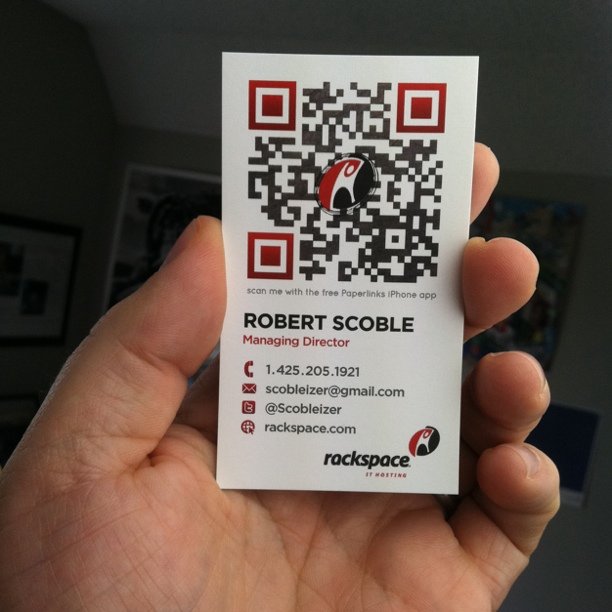Written by María Santoja
Index
We have already talked on other occasions about the importance of managing our personal brand and controlling the information that circulates on the network about us. In this article we are going to look at some online tools for managing personal branding.
SEO objectives for personal branding
To work our personal brand on the Internet, in a certain way we must treat our name or nickname as if it were a brand that we want to position.
To work on our personal brand we will draw up web positioning strategies in the same way as if we were working with a company or product.
If we were developing an SEO strategy for a brand, the first objective would be to appear in the first Google search result for that brand name. The objectives for our personal brand will be very similar:
- To ensure that, when we enter our name in Google, the search engine will offer us results that actually refer to us, and not to another person with the same name as us. In addition, these links should be ordered by importance, for example, our website or blog should appear ahead of the Linkedin or Twitter profile.
- We want the first positions to be results that we control: we want the user to access information that defends our point of view in the first place.
- That the following positions on the first page are positive information about us written by third parties.
Once we have achieved the main objective of appearing positioned for our name, we can develop a more ambitious strategy, such as appearing in searches for keywords related to our professional profile, for example, “wedding photographer in Alcoy” or “criminal lawyer in Elche”. However, it is important to keep in mind that these are long-term strategies, and that we must be concrete and realistic when defining the keywords we want to compete for.
Basic personal branding: the web and the blog
To get the first positions in Google with the search for our name, the first thing we must do is to register a domain with the same and start developing our personal web.
Nowadays there are many sites to register domains for a few euros, so, even if we are not going to make the web right away, it is advisable to make sure to register it before someone else buys the domain with our name.
To start we can take advantage of free platforms such as WordPress or Blogger and start with a simple website in which we explain who we are and what work we develop. However, if we want to use the domain of our name we will have to contract a hosting service. In any case, there are very economical options, so that, for a few euros, we can have a personal website with our own domain.
However, if we create a website and we forget about it, we do not feed it with content, nor do we update it, it is difficult for us to achieve notoriety in our sector. Therefore, the best thing to do is to write a blog related to our professional specialty.
It is true that running a blog requires perseverance, but it is the best way to position ourselves as professionals in our sector.
In addition, the blog will be the fundamental tool to work on keywords related to our professional profile. Therefore, the best thing to do is to create a blog where, on the one hand, we have pages with fixed information about us, which will work as a professional website, and on the other hand, a blog with updated content about our industry.
Social networks for professional contacts
To manage our personal brand it is very important to work with a network of contacts that help us to strengthen the professional image we want to project. To do so, it is essential to develop a social media strategy.
You have to be in the social networks, but not in all of them or in any way.
Let’s look at some guidelines for the different social networks:
- If your work requires it, it is recommended that you create a Facebook page instead of a personal profile.
- If you have a blog, you should use the Facebook page to disseminate the contents.
- Never mix your professional life with your personal life. If you want to establish a network of professional contacts, you should think about what content is of interest to them and can help you project a professional image. Therefore, family photos or photos with friends or very personal publications have no place. If you do not want to give up this use, the best thing to do is to create another account with a different name than the one you use as your personal brand.
- It is perhaps one of the best social networks to carry out a personal branding strategy.
- Look for influential people in your sector, follow them and interact with them, but always being respectful and without being pushy.
- Use Twitter lists to manage your contacts.
- Avoid getting into heated discussions, and as a general rule, it is not advisable to deal with sensitive topics such as politics and religion.
Google +
- Although many people do not have a profile on Google +, we must not forget that it is the social network of the almighty search engine.
- The contents we publish on Google + will favor the positioning of our website.
- In addition, with Google + we can link our website to our profile, so that we will appear as “Author” of such content. Authorship marking will give visibility to our contents and will help us to position ourselves as experts in those topics in which we publish.
- This is a social network where we can post our presentations.
- Sharing the professional presentations that we make, for example in a class or a lecture, is a great way to give an image as a professional in the sector.
Although it is advisable to open profiles in the main social networks to have greater control of the links with our name (as we should do with the domain, as we have said), this does not necessarily mean that we should use all of them.
There are many specific social networks that can be interesting to develop the personal brand of some professional profiles, it is advisable to know them and use them to the extent that they help us to meet our objectives.
- Pinterest and Instagram: if we work in a sector where visuals are important, these two social networks can help us gain visibility on the network, especially Instagram stories.
- Youtube and Vimeo: on the other hand, if in our professional work we work with video, these two social networks are basic to show our work.
It is also true that we must be aware of the idiosyncrasies of our sector, and while there are more open professional areas in which a certain spontaneity or even hobbies can have a place, there are others in which formality reigns and this type of content should be discarded. The publications of a publicist, who “sells” his image as modern and creative, and therefore can afford to post photos of his sushi dinners and surfing trips on Facebook, will not be the same as, for example, the public and open Facebook of a judge. In fact, for some professional profiles, such as the example of the advertiser we were looking at, this type of content can even be advantageous when it comes to transmitting the values of their personal brand.
As a general rule: never put anything on social media that works against your personal brand.
Online resume
Although we can have the resume as one of the sections of our website,there are alsosocial networks that help us to show our CV in an attractive way, and above all accessible to our contacts.
- It is the professional social network par excellence.
- We can include our CV online, and link it to content about our work that is available on the web.
- We can ask former bosses or colleagues for recommendations so that they will give credit for our work.
- On Linkedin there are discussion forums in which we can participate to, on the one hand, establish contacts, and on the other hand, position ourselves as professionals in our sector.
Although Linkedin is the most widespread platform, there is also Xing, as well as other specific social networks for different sectors, for example Domestika for creative professionals.
Online business cards
There are different online tools that serve as a business card, which basically gather brief information about the individual, links to different professional profiles and contact details. They are very simple tools, but very useful, since they gather all the professional’s information on a single page.
It is highly recommended to include a link or QR code on the physical business cards that directs us to the online business cards.
In addition, by creating an online business card we are generating a new link about our personal brand that we control and that will be easily positioned in the first search results, since the URL, the title and the content will carry our name.
In order to carry out a good personal branding strategy, it is necessary to spend time planning it: where we are going to communicate and what we are going to communicate; a calendar of publications and contents.





